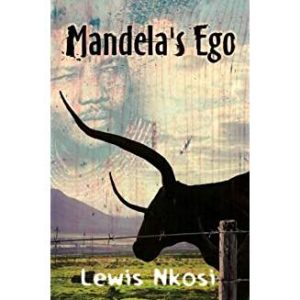Mandela’s Ego
 by Lewis Nkosi. Umuzi 2006.
by Lewis Nkosi. Umuzi 2006.
South African freedom fighter Nelson Mandela became the idol of many generations. He faced racism, oppression, civil war and finally the breakdown of the apartheid system. South African writer Lewis Nkosi’s satire about the disastrous consequences of excessive hero worship will teach you much about the rural life of herd boys in South Africa and their contests.
“Magic Madiba”, as followers called Mandela, is also the idol of the young Zulu boy Dumisani Gumede, who is in the process of crossing the boundary from childhood to manhood. Dumisani’s uncle Simon has aroused his interest in the life of Mandela, telling him many stories and rumours about both the actions – and the magical abilities – of the politican.
“There were already many such stories going the rounds. How when sighted, for instance, Mandela was able to transform himself into a black bull, grazing nonchalantly in the countryside.” Above all uncle Simon refers to Mandela as a great pursuer of women. Dumisani begins to imitate Mandela, starting a football club, with himself as its chairman. He goes to the city of Pietermartizburg to see Mandela, who has come there to address a convention to demand equal rights for all races. In his admiration for his idol, he even takes his cue regarding Mandela the “womaniser,” and runs after every girl in his village. And every girl falls victim to his charms – except Nobuhle, a beautiful orphaned girl. After many attempts to win Nobuhle’s heart, Dumisani finally succeeds and she accepts him. She invites him to meet her on the river bank. On the day they are to meet, Dumisani receives the news of Mandela’s arrest. The news shocks him and drains his nerve. When Dumisani tries to unite with Nobuhle, his body fails. He tries again but fails. In desperation, Dumisa imagines how Mandela would handle himself, and conjures “the Black Bull” – as Mandela is known. His sexual energy deserts him. Nobuhle leaves in tears. Dumisani consults with witch doctors as well as tribal and conventional doctors, and at last he enters the caravan of the mysterious Madame Bianca Rosi, a prostitute, but even she cannot cure him. He leaves his home, wandering the country aimlessly. He has already reached middle age when one day he hears the news of Mandela’s release. He attends Mandela’s first public address after his release and experiences the same life-changing impact as he did when Mandela was first captured.
“Enter Lewis Nkosi, who, with Mandela’ Ego, rushes in like a literary David to contest the Goliath autobiography’s claim to the territory of the African imagination. Nkosi is a satirist of genius.” Ben Oswest
Lewis Nkosis novel war shortlisted for the 2007 Sunday Times Fiction Award.
Novels and Autobiographies
African Traditional Life
Amkoullel, A Fula Child
Autobiographies
Aké. The Years of Childhood
Dreams in a Time of War
Facing the Lion: Growing Up Maasai on the African Savanna
Long Walk to Freedom
My Story
Unbowed: A Memoir
Coming of Age
Mandela’s Ego
Miriam's Song
Nervous Conditions
Purple Hibiscus
The Mending Season
Emigration
Lessons in Humanity
A Long Way Gone. Memoirs of a boy soldier
Child Soldier: Fighting for my life
I die, but my Memory lives on
Praise Song
Sozaboy
Stories about Friendship



